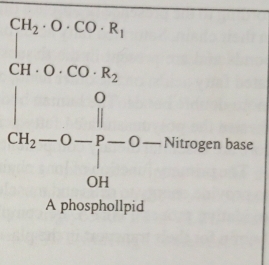Malaria is a life-threatening disease caused by the Plasmodium parasite, which is transmitted to humans through the bite of infected female Anopheles mosquitoes. There are five species of Plasmodium parasites that can infect humans, with Plasmodium falciparum being the most severe.
Malaria is a major public health problem in many parts of the world, particularly in sub-Saharan Africa, where it is responsible for a high number of deaths, especially among children under the age of five. Symptoms of malaria include fever, chills, headache, muscle pain, and fatigue, which can appear within a few days to a few weeks after infection.
Treatment for malaria typically involves a combination of antimalarial medications, which can vary depending on the severity of the infection and the species of the parasite. In addition to treatment, prevention measures such as using mosquito nets, wearing protective clothing, and using insect repellent can also be effective in reducing the risk of malaria.
Efforts to control and eliminate malaria involve a range of strategies, including improving access to healthcare, increasing the use of insecticide-treated bed nets, and developing new drugs and vaccines. Despite progress in recent years, malaria remains a significant global health challenge, particularly in areas with limited resources and poor infrastructure.
Signs and Symptoms of Malaria
The symptoms of malaria can vary depending on the species of the Plasmodium parasite and the severity of the infection. Some people may not have any symptoms, while others may experience flu-like symptoms that can be life-threatening. The symptoms of malaria typically appear within a few days to a few weeks after being bitten by an infected mosquito.
The most common symptoms of malaria include:
- Fever
- Chills
- Headache
- Muscle pain
- Fatigue
- Nausea and vomiting
- Diarrhea
- Sweats
- Jaundice (yellowing of the skin and eyes)
- Seizures (in severe cases)
In some cases, malaria can cause complications that can be life-threatening, such as cerebral malaria, which affects the brain, and severe anemia, which can cause organ damage. Pregnant women, young children, and people with weakened immune systems are at higher risk of developing severe malaria.
If you have recently traveled to a malaria-endemic area and experience any of these symptoms, it is important to seek medical attention immediately. Early diagnosis and treatment of malaria can help prevent complications and reduce the risk of transmission to others.
Malaria Parasites (MP) Test
A malaria test is a medical diagnostic test that is used to determine if a person has been infected with malaria. Malaria is a disease caused by a parasite that is transmitted to humans through the bite of infected mosquitoes. The symptoms of malaria include fever, chills, headache, muscle pain, and fatigue.
There are several types of malaria tests available, including:
- Rapid diagnostic tests (RDTs) – These tests use a small sample of blood to detect the presence of malaria antigens.
- Microscopic examination of blood smears – This is a traditional method of malaria diagnosis that involves examining a blood smear under a microscope to identify the presence of the malaria parasite.
- Polymerase chain reaction (PCR) – This is a more advanced diagnostic test that uses DNA analysis to detect the presence of the malaria parasite in blood.
Malaria testing is important because early detection and treatment can help prevent severe complications and reduce the risk of transmission to others. If you suspect that you may have malaria, it is important to seek medical attention immediately.
Treatment of Malaria
The treatment of malaria depends on several factors, including the species of the Plasmodium parasite, the severity of the infection, the patient’s age and overall health, and the presence of any underlying medical conditions. The most common antimalarial medications used to treat malaria include:
- Chloroquine: This is a commonly used medication for treating malaria caused by Plasmodium vivax, Plasmodium ovale, and some strains of Plasmodium malariae. However, it is not effective against Plasmodium falciparum, which is the most severe form of malaria.
- Artemisinin-based combination therapies (ACTs): These are currently the most effective medications for treating malaria caused by Plasmodium falciparum, which is the most deadly form of malaria. ACTs are a combination of two or more medications, including artemisinin derivatives and other antimalarials.
- Quinine: This medication is used to treat severe malaria and can be given orally or intravenously.
- Atovaquone-proguanil: This is a combination medication that is used to treat uncomplicated malaria caused by Plasmodium falciparum or Plasmodium vivax.
- Mefloquine: This medication is used to treat and prevent malaria caused by Plasmodium falciparum and Plasmodium vivax.
In addition to medication, treatment for malaria may also involve supportive care, such as fluid and electrolyte replacement, blood transfusions, and treatment of any underlying medical conditions. It is important to seek medical attention immediately if you suspect that you have malaria or if you develop any symptoms of the disease after traveling to a malaria-endemic area. Early diagnosis and treatment of malaria can help prevent complications and reduce the risk of transmission to others.


